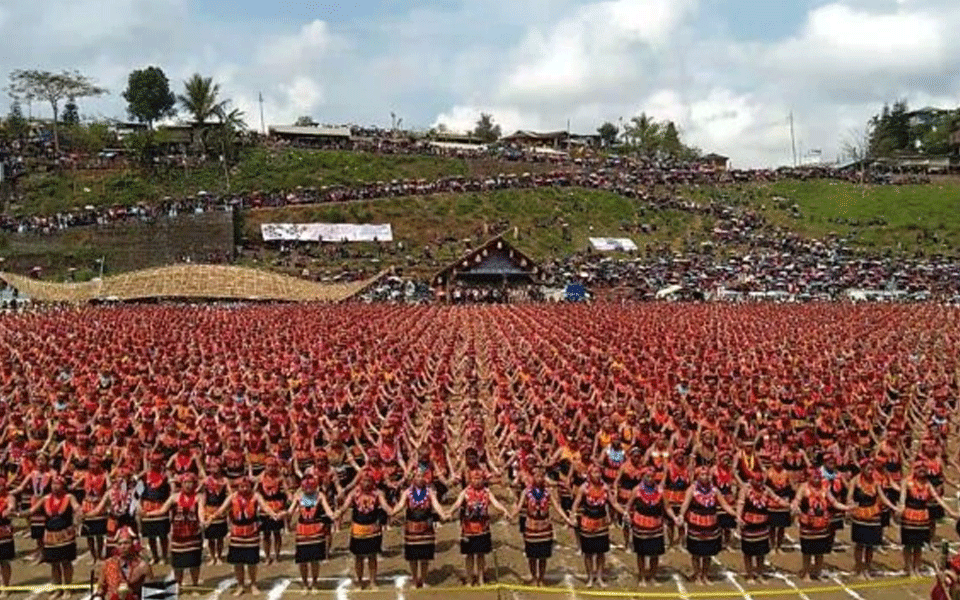Kohima, Apr 10: An organisation of the Konyak Naga tribe has set a Guinness World Record for the "Largest Traditional Konyak Dance".
The official communication in this regard was received from the Guinness World Records authorities on Tuesday night, Manlip Konyak, president of the Konyak Union, said Wednesday.
A total of 4,687 Konyak Naga women in their colourful traditional attire had come together on April 5 in an attempt to create a record for the "Largest Traditional Konyak Dance".
In their attempt, the Konyak women danced to the beats of traditional instruments and sang a ceremonial song for five minutes and one second, the organisers had said here.
Konyak is one of the 16 Naga tribes and people of this community live mainly in the Mon district of Nagaland.
The programme was organised at Mon during the Aoleang Monyu, an annual festival of the Konyak tribe to welcome the spring.
The declaration on the record was delayed as official adjudicators of the Guinness World Records could not come to judge the attempt on the day of the event. However, their representatives from the North East Zone Cultural Centre under the
Ministry of Culture were present.
The representatives had sent evidences of the programme to the Guinness authorities.
Let the Truth be known. If you read VB and like VB, please be a VB Supporter and Help us deliver the Truth to one and all.
Udupi: Manju Kola, husband of former Udupi City Municipal Council Vice-President Lakshmi Manjunath and a Hindutva organisation leader, was stabbed during a meeting held to settle a dispute related to a love affair at Malpe on Tuesday night.
Police have arrested five accused in connection with the case.
According to information available, Manju Kola had reportedly called for a compromise meeting near Malpe beach in the Palimaru area on Tuesday evening to resolve an issue involving a couple. During the discussion, a heated argument broke out and a youth allegedly stabbed Manju Kola.
He sustained injuries to his abdomen and collapsed. He was immediately shifted to a private hospital in Udupi for treatment.
Udupi Superintendent of Police Hariram Shankar said that five accused have been arrested in the case. As per preliminary investigation, the incident appears to have occurred due to personal reasons. He clarified that there is no communal angle to the incident and urged the public not to spread rumours.
The injured Manju Kola is out of danger and his condition is stable, the SP said.





